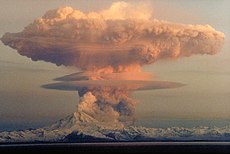 |
| Visit Busan |
Last year, a power failure at the Fukushima Daiichi nuclear plant stopped the pumps that circulate coolant water in the reactor from working. Without constant cooling, nuclear plants have an odd habit of suffering from explosions and meltdown, which is why standby generators are always used as an emergency backup. At Fukushima, these generators failed to start due to flooding from the tsunami, whereas during the accident in Busan, they failed to start due to incompetence. Both are well-known natural phenomena in their respective countries.
The South Korean government, which will shortly be hosting a 50-nation Nuclear Security Summit in Seoul, said that the events at the Gori-1 nuclear plant in faraway Busan could not be described as an accident because nobody was hurt, and since the power failure was caused by an engineer making an error during a routine safety check, it was somewhat predictable. The event was also good for the local economy, with local dry cleaning companies reporting a brisk trade in uniform cleaning immediately following the accident.
The incident remained unknown about for over a month because even though by law nuclear accidents must be reported to Korea's Nuclear Safety and Security Commission within 15 minutes of them happening, officials at the Gori-1 nuclear plant decided to not to bother, partly because the power was down and the phones had stopped working. The accident remained a secret for more than a month until by chance, a member of Busan City Council overheard a conversation between plant engineers in a local restaurant who sources say were debating whether the locally caught seafood was safe after the near-meltdown.
The plant's operators, speaking from the safety of their headquarters in Seoul, say that safety is at the heart of everything they do, which is why in future for safety reasons nuclear workers will no longer be allowed in restaurants when they are not at work in case they say anything unsafe. They also denied any allegations that there was a cover-up, with a spokesman explaining that "it wasn't a secret, we just decided not to speak publicly about it, just like all those times your father beat your mother."
Gori-1 was Korea's first nuclear plant. Built by Hyundai and becoming operational in 1978, it is now well into the 34th year of its 30-year design life, making it one of the oldest Hyundais still running in Korea. The government dispute this saying that it is only 33 years old, given the fact that it was originally shut down for a year when it reached the end of its lifespan, only being restarted a year later because of power shortages, which required more risks to be taken, and the discovery that properly decommissioning the plant would cost 1 trillion won ($840 million), which nobody had.
Since being restarted, Gori-1 has suffered from a series of incidents which are publicly known about, and many more which are not. In December, blackouts occurred after the plant experienced what was described by its operators as "a temporary overvoltage". Earlier in the month, The Hankyoreh reported that employees and suppliers at the plant had conspired to install used nuclear parts as new ones in the plant. The operators said there was no cause for concern because the equipment used parts were placed into was separate from the reactor.
After the latest incident, the international community begged Korea to end its nuclear program, but Seoul says that given Busan's geographical location and its prevailing winds, if a meltdown occurs it will most likely dump radioactive fallout on Japan, not Korea.
Government officials also pointed out that the new Gori-3 and Gori-4 plants which are expected to become operational in 2012 and 2014 will be better able to showcase Korea's nuclear technology to other countries for export purposes. There had been some criticism of the decision to build more nuclear plants next to Gori-1, but addressing the concerns a government spokesman said that "one of the lessons from the Fukushima nuclear disaster is that if you're going to have an accident, it's better that it all happens in one place."
Related Links
SK Sees Nuclear Plant Jitters Ahead Of Summit
[Editorial] Faulty power plant parts cause for concern
30-Year-Old Gori Reactor to Work 10 More Years
Untrustworthy safety tests at aging nuclear plants
Oldest nuclear reactor resumes operation
Power Supply at Gori Nuclear Power Plant Cut Again
Second massive blackout looming larger
Nuclear reactors in Korea suffer numerous stoppages
Another problem at Gori nuke plant
Doubts over aging Wolseong reactor
Simulated Nuclear Plant Attack Turns Real
Today's Blackouts Caused by Incompetence, Not NK Attack
Fukushima Daiichi nuclear disaster
Disclaimer: Please note the links above are generated automatically by our software and may not always be directly related to the news article.